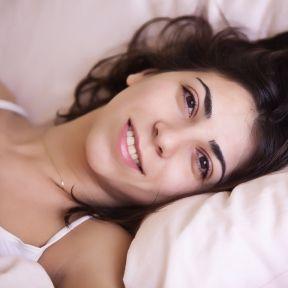SLEEP- Does It Matter Whether You Only Slept 5 Hours Last Night? The brains of short sleepers are different from others. Reviewed by Kaja Perina

KEY POINTS-
- Some people sleep much less than the recommended seven hours yet appear to experience no daytime sleepiness.
- Short sleepers have significantly larger regional brain volumes as compared to others.
- Short sleepers who do not complain about daytime sleepiness have slightly impaired cognitive function.
- Sleep need is highly individual and sleep duration is weakly if at all related brain health.
The recommended amount of sleep scientists believe we need each night depends on age. Infants sleep up to sixteen hours each day, and the amount suggested declines with aging. The recommendation for adults is now seven or more hours each night.
Epidemiological evidence shows that getting less than seven hours of sleep at night on a regular basis has negative consequences on the body, including weight gain, obesity, diabetes, high blood pressure, heart disease, and stroke. However, notice that those are consequences on the body. Does your brain care if you only get four hours of sleep each night?
We all know people who sleep much less than the recommended seven hours yet appear to experience no daytime sleepiness. This is contrary to predictions that short sleepers face increased risk of impaired brain health and cognitive function. Are these short sleepers more resistant to the negative effects of sleep loss?
A recent study investigated this question by using a cross-sectional and longitudinal sample of more than 47,000 male and female participants (aged 20 to 89 years old). The study utilized self-estimates of total sleep time each night. The participants self-estimations of sleep duration were also confirmed using accelerometers placed next to the subject during sleeping. There are numerous apps that are also capable of monitoring sleep cycles. In addition, the scientists conducted almost 52,000 MRIs of their brains and various tests of cognitive function.
Only about one percent (740) of these participants reported needing less than six hours of sleep each night. Cognitive testing demonstrated that these short sleepers did not experience daytime sleepiness or sleep problems; they claimed to fall asleep and stay asleep.
Are the brains of short sleepers different from others?
Yes. The most unusual difference was that the short sleepers had significantly larger regional brain volumes as compared to short sleepers who complain of daytime sleepiness and other sleep problems, and compared to people who get the recommended seven to eight hours of sleep each night. Short sleepers, whether they complain about daytime sleepiness or not, all had slightly lower scores on general cognitive function tests.
Overall, the results suggest that some people can cope with less sleep without obvious negative consequences. Daytime sleepiness may be more related to changes in regional brain volumes than duration of sleep at night. The authors concluded that sleep need is individual and that sleep duration per se is very weakly if at all related brain health. Future studies will be needed to investigate the association between daytime sleepiness and sleep problems in vulnerable individuals.
- Questions and Answers
- Opinion
- Story/Motivational/Inspiring
- Technology
- Art
- Causes
- Crafts
- Dance
- Drinks
- Film/Movie
- Fitness
- Food
- Games
- Gardening
- Health
- Home
- Literature
- Music
- Networking
- Other
- Party
- Religion
- Shopping
- Sports
- Theater
- Wellness
- News
- Culture
- War machines and policy

